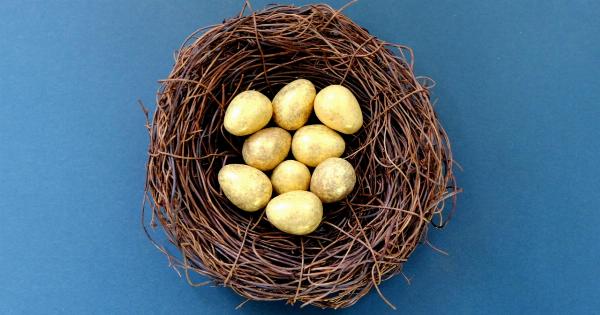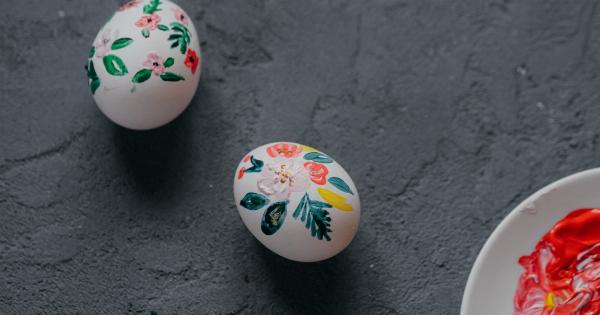Easter is a Christian festival commemorating the resurrection of Jesus Christ from the dead. It is celebrated on the first Sunday following the first full moon after the vernal equinox, meaning that it falls between March 22 and April 25 each year.
However, the origins of Easter stretch back much further than Christianity.
The Pagan Origins of Easter
The ancient Greeks celebrated the return of spring with a festival in honor of their fertility goddess, Demeter. This festival, known as the Thesmophoria, was held over three days and involved feasting, dancing, and singing.
In ancient Rome, the festival of Saturnalia marked the end of winter and the start of spring. Celebrated from December 17 to 23, it was a time of gift-giving, merry-making, and the suspension of social norms.
Later, in the 4th century AD, the Roman Empire adopted Christianity as its official religion, and the celebration of Easter gradually became intertwined with ancient pagan traditions.
Easter Traditions
Today, Easter is celebrated around the world in a variety of ways. In the United States and Canada, it is often associated with the Easter bunny, egg hunts, and the consumption of chocolate treats.
In many European countries, Easter is celebrated with elaborate processions, parades, and religious rituals.
The Easter egg has become one of the most ubiquitous symbols of the holiday. Egg decorating is a tradition that dates back centuries, with ancient Persians, Greeks, and Egyptians all dyeing eggs for spring festivals.
Many Christians believe that the egg symbolizes new life and the resurrection of Jesus.
The Health Benefits of Easter Foods
While Easter is known for its sweet treats, it’s also a time to indulge in some of the season’s finest foods. Many of these foods have health benefits that can help offset the more indulgent aspects of the holiday.
1. Asparagus
Asparagus is a spring vegetable that is often served as part of the Easter meal. It is high in fiber, folate, vitamins A, C, E, and K, and minerals such as iron, calcium, and potassium.
Asparagus also contains antioxidants and anti-inflammatory compounds that can reduce the risk of chronic diseases such as heart disease and cancer.
2. Lamb
Lamb is a traditional Easter dish in many cultures. It is a good source of protein and healthy fats such as conjugated linoleic acid (CLA), a fatty acid that has been linked to weight loss and improved insulin sensitivity.
Lamb also contains vitamins and minerals such as iron, zinc, and vitamin B12.
3. Artichokes
Artichokes are another spring vegetable that is packed with health benefits. They are high in fiber, vitamin C, folate, and minerals such as magnesium and potassium.
Artichokes also contain antioxidants such as quercetin and rutin, which have anti-inflammatory effects.
4. Dark Chocolate
While milk chocolate is often associated with Easter, dark chocolate is a healthier option. It is high in antioxidants such as flavones and polyphenols, which can improve heart health and reduce the risk of chronic diseases such as diabetes and cancer.
Dark chocolate also contains magnesium and theobromine, two compounds that can boost mood and improve cognitive function.
Pregnancy Diet During Easter
For pregnant women, Easter can be a tricky time when it comes to food. Many traditional Easter foods such as ham, soft cheeses, and raw eggs can pose a risk of foodborne illness if not prepared or stored properly.
Here are some tips for enjoying a healthy and safe Easter while pregnant:.
1. Avoid Certain Foods
Pregnant women should avoid certain foods that are more likely to be contaminated with harmful bacteria or parasites.
These include raw or undercooked meat, poultry, seafood, and eggs, as well as unpasteurized dairy products and soft cheeses such as brie, feta, and goat cheese.
2. Choose Safe Foods
There are plenty of safe and healthy options to choose from at Easter. Opt for well-cooked meats, hard cheeses, and pasteurized dairy products. Fruits and vegetables are also a good choice, as long as they are washed thoroughly before eating.
3. Limit Sugar Intake
Easter is known for its sugary treats, but too much sugar can have negative effects on both the mother and the developing fetus.
Pregnant women should aim to limit their intake of added sugars and focus on whole foods such as fruits, vegetables, whole grains, and lean proteins.
4. Stay Hydrated
It’s important for pregnant women to stay hydrated, especially during warmer weather. Drink plenty of water and avoid sugary drinks such as soda and juice.
Conclusion
Easter is a time of celebration and indulgence, but it’s important to keep health in mind. By choosing nutrient-rich foods and avoiding risky foods, pregnant women can enjoy a healthy and safe Easter.
Regardless of whether you celebrate Easter for religious reasons or not, it can be a great time to reconnect with family and friends and enjoy the bounty of the season.






























